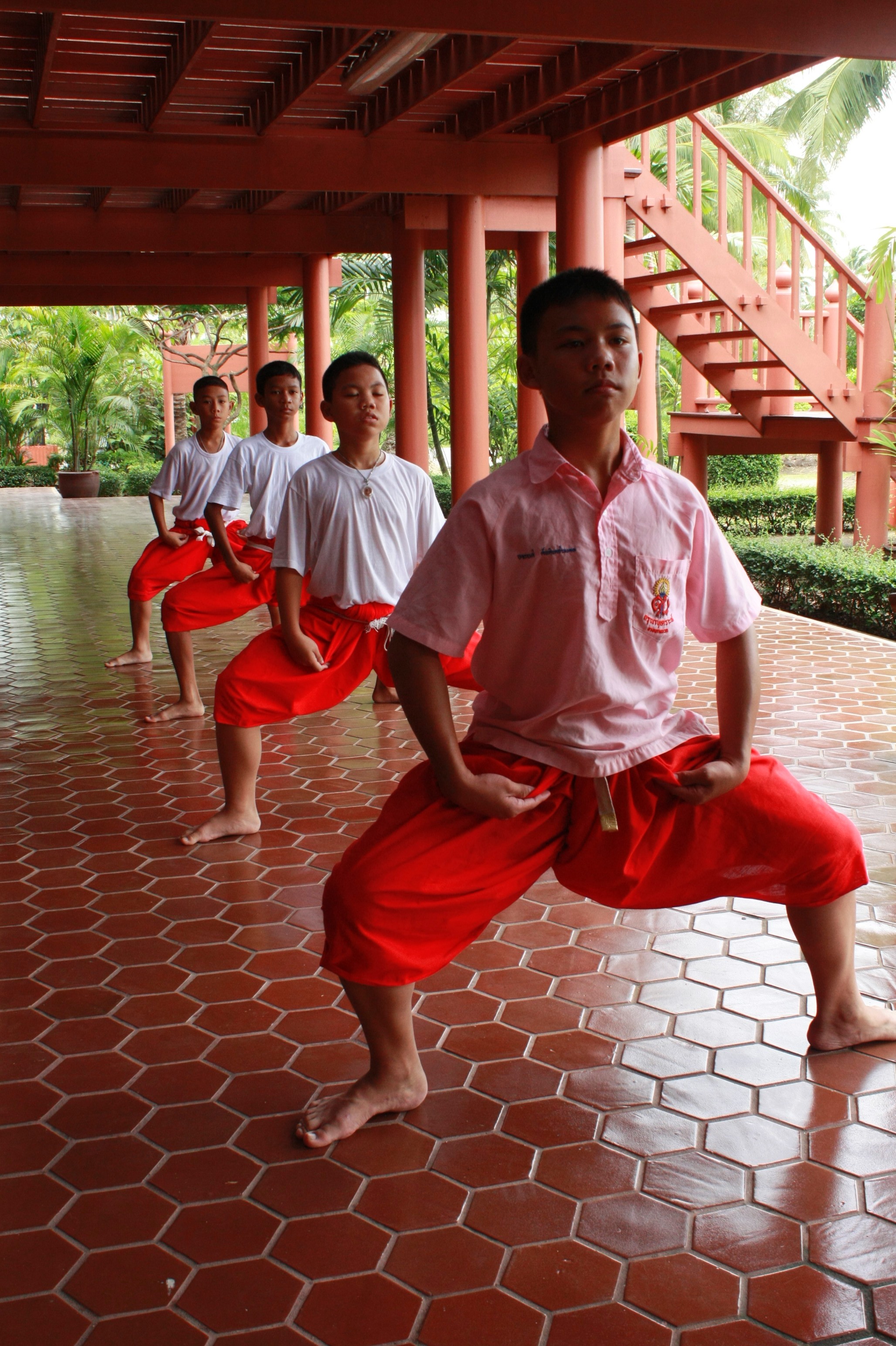

After a few days in Bangkok, we asked one of our musicians, Franco (a former ACTA apprentice), “What do you notice the most?” It’s his first time to Thailand. He answered, “What, other than being surrounded by Thai people everywhere?”
Traditional performing arts is alive and well where we are now. During practice this week, it’s been humbling to have former TCC instructors lend themselves and their classrooms to our cast and orchestra. Our troupe of 20 performers has now become an army of over 100, literally – we have a battle scene. Musicians and dancers range from elementary to secondary to college-aged students to counterpart our own.
Our play, Pra Aphai Manee, is a well-known epic in Thai literature. Ironically, it centers around the main character’s seduction by Western culture and the betrayal of his family and kingdom. So our American students perform for a Thai audience with lines like, “What’s so great about the West anyway?” The story was written during the 19th century, so in addition to memorizing Thai lines, the script also has the poetic rhythm similar to that of Shakespeare.
Naturally, our network here is comprised of music and dance instuctors and advocates, but we wonder about the state of Thai performing arts outside this “bubble.” Though we mentioned that there is no shortage of students for our show, it seems like this enthusiasm and dedication stays within this circle – in education, but not necessarily promoted in mainstream media as much as the latest romantic comedy or horror flick. We’ve also encountered some tension between our elders and an emerging genre Thai folks call “contemp” – a shortened Thai pronunciation of “contemporary” – combining elements of Thai costume, dance movements, music with new technology, sound mixing and sometimes borrowing from ballet or modern dance.
We just returned from a weekend excursion to Amphawa, a district in the province of Samut Songkhram – where aside from its renowned floating market, we also visited a foundation honoring the period of King Rama II. He is known for adapting the Ramakian (the Ramayana) for Thailand. Our group got to watch (and briefly join) students training for ‘khon’ classical dance in male, female, demon and monkey styles. Our director asked if they’d like to “adopt” our students for a week. A possible direction for the future…
